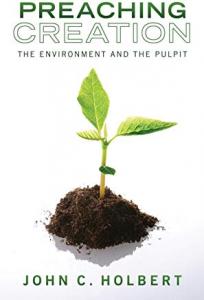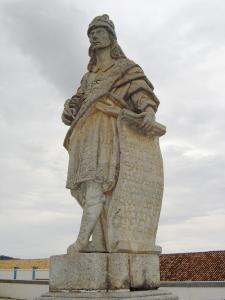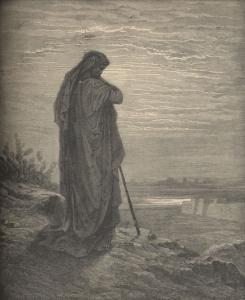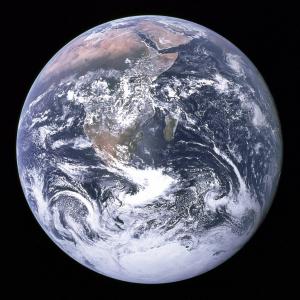 The news from the planet grows more calamitous each day. Today I read that we face the extinction of nearly 1,000,000 species within the next few decades, the sixth mass extinction event in the history of earth, the first such in the span of human history, and that our land surface has been 82% degraded in ways that will lead to more heat, less water, and more dangers for countless plants and animals, including us. Climate change is real and it is accelerating far more rapidly than most scientists had feared. And speaking of climate scientists; the approximately 3% of reputable researchers who call into question the reality of climate change, the ones regularly referred to by the deniers as “those scientists who make climate science contested,” have been shown once again to have used flawed and/or poor and/or downright ridiculous information and procedures to support their rejections of the findings of 97% of their scientific colleagues. One would be hard pressed to discover any finding of science that has 97% agreement, coupled with the other 3% with practically no support for their opposite conclusions. In short, there is now no argument that the planet’s climate is changing and not for the betterment of the world’s inhabitants.
The news from the planet grows more calamitous each day. Today I read that we face the extinction of nearly 1,000,000 species within the next few decades, the sixth mass extinction event in the history of earth, the first such in the span of human history, and that our land surface has been 82% degraded in ways that will lead to more heat, less water, and more dangers for countless plants and animals, including us. Climate change is real and it is accelerating far more rapidly than most scientists had feared. And speaking of climate scientists; the approximately 3% of reputable researchers who call into question the reality of climate change, the ones regularly referred to by the deniers as “those scientists who make climate science contested,” have been shown once again to have used flawed and/or poor and/or downright ridiculous information and procedures to support their rejections of the findings of 97% of their scientific colleagues. One would be hard pressed to discover any finding of science that has 97% agreement, coupled with the other 3% with practically no support for their opposite conclusions. In short, there is now no argument that the planet’s climate is changing and not for the betterment of the world’s inhabitants.
So, I repeat what I have been saying in these essays about climate change and biblical resources: we preachers must now preach and teach loudly and forcefully that the earth belongs to God, and everything in it, that we humans are not the center of that creation, and that God loves what God has made and calls us to serve that creation and to protect it in any ways that we can. Today I turn to the prophets of the Hebrew Bible, those sometimes angry, sometimes saddened harbingers of God’s will for the world. These figures were active in Israel from the time of the first kings, David and Solomon, right down to the end of Israel as a nation, well over 400 years. One brief essay will hardly be able to cover the rich expressions that the various prophets gave to us that may serve as pillars of an environmental ethic, as a biblical view of how to love and care for the planet. I will examine only two of the prophets to make the basic point that in this corpus of literature, there is much to be found to buoy us as we strive for language and theme to help our people and ourselves toward a more Godly relationship to our cosmos.
I begin with the prophet Hosea, a man called to speak to the northern kingdom of Israel sometime in the middle of the 8th century BCE. His personal story is central to his prophetic call. He is convinced, we are told, that YHWH has called him to marry a prostitute, Gomer by name, and he proceeds to do just that but suffers the inevitable consequences of unfaithfulness and a fruitless series of attempts to keep his wandering wife with him. The text is not altogether clear, but Gomer apparently disappears (Hosea 3). YHWH reveals to the saddened and sickened prophet that the whole thing was YHWH’s way of telling Israel that they are like Gomer and Hosea is like God, trying to woo a recalcitrant and sinning people back into God’s fold. This may all be metaphor, but that in no way lessens the power of the story. Hosea spends his entire prophetic career attempting to call the wayward Israel back to YHWH, a YHWH he in chapter 11 describes in ways perhaps unmatched in the entire Hebrew Bible. For there, YHWH is said to refuse to give Israel up for the quite literal reason that YHWH has a womb! The word for compassion in Hebrew is built directly on that female organ, and because YHWH is best characterized by compassion, YHWH will never abandon Israel no matter how like Gomer they may be. In fact, a literal reading of Hosea 11:9 is: “I will not enact my fierce anger; I will not again destroy Ephraim (Israel), for I am God and not a male, the Holy One among you, and I will not come in wrath.” The word often translated “mortal” is in most instances to be read as “male,” and given the radical understanding that Hosea has of his God, I would not put it past him to describe God as not a male, since compassion, or “womb-love” best describes his God.
All that is by way of context for Hosea’s wonderful environmental concerns. In Hosea 4:1-3, directly following the struggle with Gomer in chapters 1-3, we read these powerful lines: “O people of Israel, hear the word of YHWH, for YHWH has a lawsuit against those who live in the land. There is no faithfulness, no chesed (unbreakable, God- like), no knowledge of God in the land; swearing, lying, murder, stealing, and adultery burst forth; bloodshed follows bloodshed. That is why the land weeps, and all that live in it languish, along with the wild animals, and the birds of the sky; even the fish of the sea perish!” And there you have it, from a prophet living some 2700 years ago. Human desecration leads inexorably to the demise of the environment, and though Hosea could know nothing of atmospheric CO2 concentrations, he could see with his own eyes that human breaking of the most basic laws of God, those laws enshrined in the Ten Commandments, leads to the end of those creatures that share our globe. Our 20th and 21stcentury greed, our unrelenting exploitation of the world in which we live, has led and will continue to lead to animal extinctions corral reef death, and the concomitant perishing of the ocean’s fish. Hosea’s ancient words are all too prescient in our time.
Hosea’s near contemporary, Amos, was called by YHWH from the southern land of Judah to head north and to bring his prophetic words to Bethel, the central sanctuary of Israel in the north. It could well be said that he was the first of the prophets to unite the twin ideas that YHWH was both the God of creation as well as the God who demands justice. It is this combination that we must embrace if we are both to love the creation and to demand from ourselves and our people the justice due to that creation and everything that lives in it. Amos demonstrates this combination in Amos 4 when he first mocks the call of the priests for the faithful to “come to church.” “Come to Bethel—and sin! Gilgal—maximize sin! Bring sacrifices every morning, your tithes every three days, a thank offering of unleavened bread; announce free-will offerings—advertise! For so you love to do, people of Israel!” While Israel worships and prays up a storm at Bethel with extravagant gifts and boisterous song, they close their eyes and ears to what YHWH has tried to tell them in their world, a land filled with environmental disaster: famine (Amos 4:6); drought (4:7-8); agricultural disease and insect pests (9); human and animal plague (10); and cosmic conflagration all too like the horrors of Sodom and Gomorrah (11). None of these terrible events seem to deter them from their lavish worship; none of the dread changes in their world cause them to return to God. We must not conclude from these verses that there is some sort of magical connection in nature suggesting that YHWH uses nature as a direct warning of God’s anger. What we need to learn from Amos 4 is that the social orders of human life and the larger cosmic orders of our environment are inextricably interrelated. We 21st century folk know this fact all too well as we watch our planet struggle to survive amidst our greed and uncaring demands for pleasures and luxuries.
These ancient prophets were keen observers of their world and have offered to us crucial insights by which we may identify and name the connections between our human actions and the cosmic consequences of those actions. Can we not preach and teach what these prophets have taught and what the Bible’s translators and preservers have given to us to pass on, the great gift of God to us of our sacred scripture? I urge you to take the imminent crisis of our planet with all the seriousness you can muster. The planet needs you and God still calls for prophets in our time.
(Images from Wikimedia Commons)











